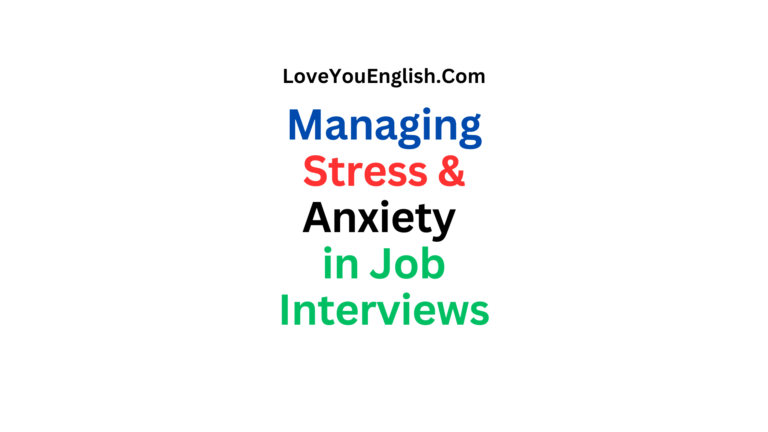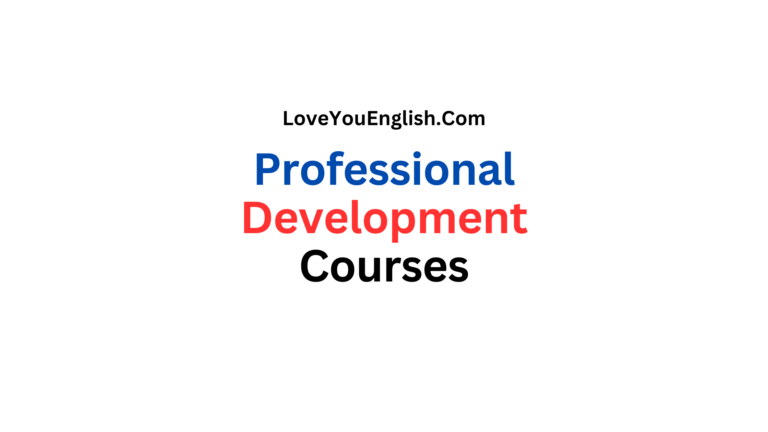Professional Growth for Teachers
Professional Growth for Teachers
As a teacher, you have a huge influence on the future.
The way you affect your students’ lives is beyond measure, and the lessons you teach can stay with them forever.
To be the best teacher possible, it’s essential to work on your own growth and improvement.
This is where professional growth comes into play.
What is Professional Growth for Teachers?
Professional growth for teachers means enhancing your skills, knowledge, and teaching methods.
It’s an ongoing journey of learning that helps you become a better educator.
This growth can happen in various ways, like going to workshops, attending conferences, or experimenting with new teaching strategies in your classroom.
Why is Professional Growth Important?
Staying Current: Education is always evolving. There are constantly new ways to teach, new technologies, and fresh research.
By focusing on professional growth, you can keep up with these important changes.
Enhances Student Success: As you develop your skills as a teacher, your students gain from it. Improved teaching methods lead to better results for them.
Increases Job Enjoyment: Gaining new skills and enhancing your teaching can make your work more fun and fulfilling.
Opens Career Doors: Professional growth can lead to new chances for moving up in your teaching career.
Inspires Students: When students see you learning and improving, it motivates them to pursue their own growth.
Ways to Enhance Your Professional Development
Participate in Workshops and Conferences
Attending workshops and conferences is a fantastic way to discover new teaching methods, meet other teachers, and keep up with the latest trends in education.
Search for events nearby or online that cover topics you find interesting or areas where you want to grow.
Become a Member of Professional Organizations
There are many organizations for teachers across various subjects and grade levels.
Joining these groups can give you access to helpful resources, networking chances, and professional development activities.
Enroll in Online Courses
Numerous online platforms offer courses specifically for teachers.
These can vary from short lessons on particular subjects to complete certificate programs.
The convenience of online learning makes it easier to fit professional development into your busy life.
Read Educational Literature and Journals
Stay updated on the newest research and effective practices in education by reading books and academic journals.
Many schools and libraries offer access to educational databases where you can find these materials.
Work Together with Colleagues
Your fellow teachers can be a great resource for your professional growth.
Share ideas, watch each other’s classes, and collaborate on developing the curriculum.
Learning from your peers can be extremely helpful.
Consider Advanced Degrees
Think about pursuing a master’s degree or doctorate in education.
These programs can enhance your knowledge and may open up new career opportunities.
Engage in Action Research
Conduct research in your classroom to enhance your teaching methods.
This means identifying a challenge, trying out a solution, and assessing the outcomes.
Find a Mentor
Look for a more experienced teacher who can guide you.
Their advice and experience can be incredibly helpful for your professional development.
Reflect on Your Teaching
Taking time to reflect on your teaching practices is a powerful way to grow.
Consider what’s working well and what areas could use some improvement.
Embrace Technology
Get familiar with new educational tools and technologies.
This can improve your teaching and help students get ready for a tech-driven world.
Key Areas for Professional Growth
Classroom Management
Good classroom management is essential for a positive learning space.
This means using strategies to keep order, organize your classroom, and manage your time well.
As you develop professionally, you might discover new ways to engage students, deal with disruptions, or set up routines that make the most of learning time.
Instructional Strategies
There’s always a chance to enhance how you teach and support learning.
This could mean exploring different teaching styles like project-based learning, inquiry-based instruction, or tailored teaching methods.
You might also work on skills like asking questions, giving feedback, or using assessments to guide learning.
Content Knowledge
Expanding your knowledge of the subjects you teach is a key part of professional growth.
This could involve taking classes in your subject area, going to subject-specific workshops, or keeping up with the latest trends in your field.
Technology Integration
In our digital world, adding technology to your teaching is more important than ever.
This might mean learning to use educational apps, designing digital lesson plans, or using online tools for student teamwork and assessments.
Cultural Competence
As classrooms become more diverse, it’s vital to build cultural competence.
This means understanding and valuing different cultures, addressing biases, and fostering an inclusive classroom atmosphere.
Special Education
Even if you’re not a special education teacher, knowing about various learning disabilities and ways to help students with special needs can really improve your teaching skills.
Social-Emotional Learning
It’s becoming more important to understand how to help students grow socially and emotionally.
Learning about ways to encourage skills like self-awareness, self-management, and making responsible choices can help all your students succeed.
Parent and Community Engagement
Building skills to communicate with parents and connect with the community can make you a more effective teacher.
Overcoming Barriers to Professional Growth
Professional growth is essential, but it can be tough. Here are some common challenges and tips to get past them:
Time Constraints
Teaching takes a lot of time, and finding moments for professional development can be hard.
To tackle this:
- Look for online courses or self-paced learning that fit into your schedule.
- Try to add learning into your daily life, like reading an educational article during lunch.
- Check if your school has professional development days or time off for training.
Limited Resources
If your school doesn’t have much money for professional development:
- Search for free online resources and webinars.
- Apply for grants or scholarships to support your learning.
- Share resources and ideas with your colleagues to make the most of learning opportunities.
Lack of Support
If you feel like you’re not getting enough support for your professional growth:
- Talk to your administrators about how professional development can help everyone
- Create a group with colleagues who share similar goals
- Look for mentorship outside of your school if you need to
Resistance to Change
Changing the way things are done can be tough.
To make it easier:
- Start with small changes and gradually make bigger ones
- Think about how new methods can benefit your students
- Get help from colleagues who have made changes successfully
Creating a Professional Growth Plan
To really boost your professional growth, it’s a good idea to have a clear plan.
Here’s how to do it:
Self-Assessment
Begin by thinking about what you’re good at and what you need to work on.
Take into account feedback from students, coworkers, and administrators.
What parts of your teaching do you want to improve?
Set Goals
After your self-assessment, create specific, measurable, achievable, relevant, and time-bound (SMART) goals for your growth.
For instance, “By the end of this school year, I will use project-based learning in at least two units of my curriculum.”
Identify Learning Opportunities
Look for and list professional development options that match your goals.
This could be workshops, online classes, books to read, or observing your colleagues.
Make an Action Plan
Write down the steps you will take to reach your goals. Be sure to include deadlines and specific tasks.
For instance, “In September, I will go to a workshop about project-based learning.
In October, I will create my first project-based unit.”
Put Your Plan into Action and Reflect
As you follow your plan, take time to think about how things are going.
What’s going well?
What problems are you encountering?
Change your plan if needed based on what you discover.
Ask for Feedback
Don’t be shy about getting feedback from your coworkers, mentors, or school leaders while trying out new methods.
Their advice can really help you grow.
Celebrate Your Achievements
Take time to recognize and celebrate your progress.
Acknowledging how far you’ve come can keep you motivated and excited about learning more.
Evaluating the Effects of Your Professional Growth
It’s crucial to see how your efforts to grow professionally are making a difference.
Here are some ways to do that:
Student Results
Check how your professional development is impacting student learning.
This might mean looking at test scores, assessing student work, or noticing changes in how engaged and behaved students are.
Self-Assessment
Think about how your teaching has evolved and improved.
Are you feeling more confident?
More effective?
Happier with your job?
Feedback from Peers
Invite colleagues to watch your teaching and give you feedback.
Have they seen improvements in the areas you’ve been focusing on?
Student Feedback
It’s really important to pay attention to what students think.
Ask them how they feel about any changes you’ve made in your teaching style.
Administrator Evaluations
If your school does regular evaluations of teachers, these can give you great information about how you’ve improved over time.
Sustaining Professional Growth
Growing professionally isn’t just a one-time thing; it’s a journey that keeps going.
Here are some ideas to help you keep growing:
Stay Curious
Always be curious about teaching and learning.
Be open to trying new ideas and methods.
Connect with Other Educators
Make friends with other teachers.
You can do this through social media, professional groups, or local gatherings.
Share Your Learning
Teaching others is a great way to help yourself learn better.
Share what you know with your coworkers, present at conferences, or write about your experiences online.
Embrace Challenges
Look at challenges in your teaching as chances to grow instead of problems.
Make Time for Reflection
Take some time regularly to think about your teaching and how you’re growing professionally.
Stay Balanced
Don’t forget to take care of yourself while you grow. If you get burned out, it can make it hard to keep learning and improving.
Conclusion
Growing as a teacher is super important for being effective and feeling good about your job.
It means always working on your skills, keeping up with the latest in education, and finding new ways to make a positive difference in your students’ lives.
Even though it takes time and hard work, the rewards are huge – for you, your students, and the teaching field overall.
Every little step you take to improve yourself as a teacher has a big impact on your students, your school, and the whole education community.
By focusing on your own growth, you’re not just making yourself better – you’re helping to make education better for everyone.
So, take on the adventure of professional growth!
Stay curious, be open to fresh ideas, and keep learning.
Your students and your future self will really appreciate it!







